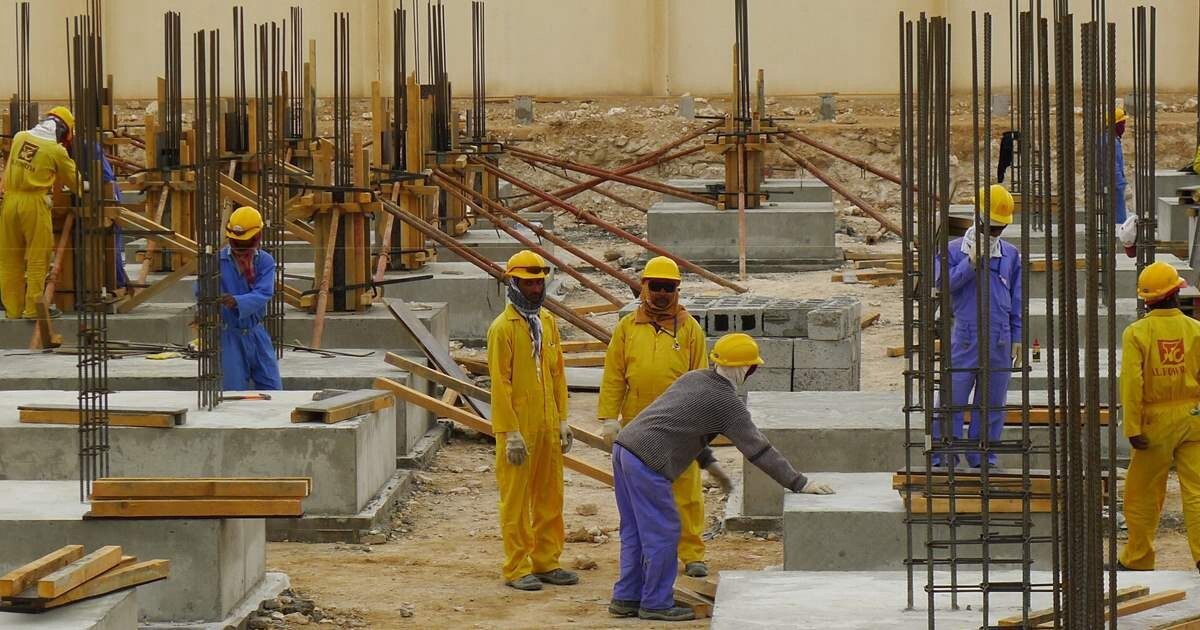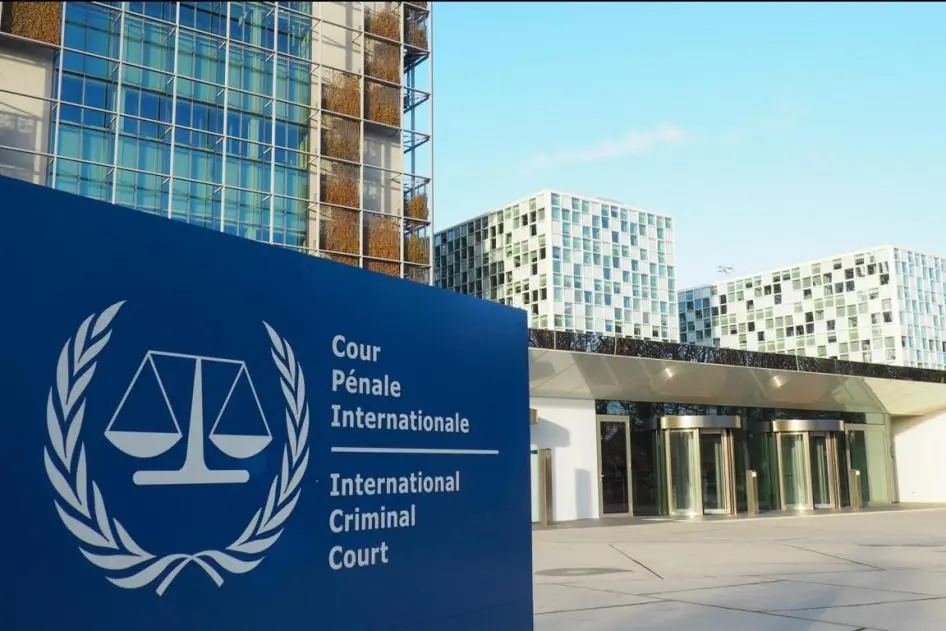The ILO has been working with Qatar in recent years to oversee the reforming of its laws to meet international standards. However, while a lot has changed, more work is required.
The labour of one million and a half workers from Asia and Africa made the World Cup, which will begin in just four days, a possibility.
Since winning the bid in 2010, Qatar has launched a vast development programme as part of its preparations for the FIFA World Cup 2022. This included the construction of stadiums and other infrastructure projects like hotels, highways, and public transportation systems from scratch.
The past ten years saw numerous reports of forced labour and the exploitation of migrant workers. International trade unions filed a complaint with the International Labour Organisation (ILO) in 2014, accusing Qatar of failing to address its labour rights violations.
However, Qatar was open to make changes and improvements, and so authorities came to an agreement with the the UN agency to launch a programme to support significant labour reforms following a period of protracted negotiations.
ILO priorities in the country have included the establishment and implementation of new Occupational Safety and Health and inspection policies, as well as addressing reducing heat stress.
However, since then, questions about the actual number of occupational accidents in the nation continue to be raised due to the inconsistent reporting on workplace accidents, injuries, and fatalities.
Reforms have taken place, and although hundreds of thousands of workers have already benefited from the actions taken, more urgent efforts are required to ensure that all workers make the most out of the changes.
The ILO collaborated with the Qatari government and other important organisations to create a study with the most thorough data currently available on the subject using a newly established approach.
It is crucial to acknowledge that while Qatar has made strides toward upholding the human rights of migrants in response to concerted international advocacy and criticism, the country has also demonstrated unprecedented (for the region) openness to cooperating with international NGOs, labour organisations, and UN agencies.
Laws and regulations now adhere to international standards thanks to technical cooperation with the International Labour Organization and the opening of a project office.
Here’s what changed, what didn’t, and what could be done, according to the ILO’s latest report.
The Kafala system changes
The previous Kafala system made workers excessively dependent on their employers and led to situations of labour exploitation with the requirement for workers to take permission from their employers before changing occupations.
- After the modification of the system in 2020, employees are now permitted to change occupations whenever they want with a notice period of up to two months.
- Migrant employees, including domestic workers, no longer need an employer-approved exit visa to leave the country.
- In the two years since new legislation was introduced, over 350,000 job-change applications have been allowed.
Lingering remains of the Kafala system
While a lot of progress has been made, issues persist, as many workers still encounter obstacles while quitting a job and changing to another.
One of the problems facing workers is the retaliation from their employers who may withdraw their residency permits or file fictitious “absconding” charges against them.
Additional work is required to eliminate these retaliatory tactics.
Another significant barrier is the general lack of understanding of labour mobility. To ensure that all employees and employers may take advantage of the reforms, procedures and rules must be made clear to all parties involved, according to the ILO.
Qatar’s Ministry of Labour and Ministry of Interior are integrating their computerised systems to cross-check data and prevent employers from taking such acts.
Minimum wage
Qatar became the first nation in the Gulf to implement a non-discriminatory minimum wage in March 2021. This rate is applicable to all workers, regardless of nationality, in all industries, including domestic work.
As a result:
- 280,000 workers, or 13% of the workforce, had their pay increased to the new minimum threshold.
- Employers are required to transfer workers’ wages via Qatari banks so that the Ministry of Labour can watch over the transactions and lessen wage fraud.
Despite the great success of the steps taken to preserve wages, far too many employees continue to have to wait months before receiving their paychecks.
However, the consequences for failing to pay salaries have increased, and they are being enforced more aggressively.
The size of pay abuses is shown by the fact that a fund established by the government has paid out US$320 million to workers since 2019.
Data, especially that pertains to the cost of living, should be gathered in accordance with international norms in order to assess the minimum wage.
The representatives of companies and workers should be consulted by Qatar’s Minimum Wage Commission when it comes time to assess and suggest changes to the minimum wage.
Work place accidents
At least 50 workers died and just over 500 had severe injuries in 2020, according to the ILO report, One Is Too Many.
The ILO is assisting the Qatari government in raising the calibre of data collecting, a task currently carried out by a number of entities here using multiple definitions, without a unified strategy.
A new specialised division for occupational health and safety is being established within the MoL, with an emphasis on preventing workplace accidents and ensuring that workers are protected by the law.
Filing complaints
Prior to the labour reforms, employees had relatively little options for filing complaints against their employers.
- The number of worker complaints made to Qatar’s Ministry of Labour climbed from 11,000 to 25,000 between 2021 and 2022. The creation of a new online portal for employees to file concerns explains this development.
- 67% of the complaints between October 2021 and October 2022 were settled before or during the conciliation stage.
- The other 23% were referred to recently established labour courts.
- 84% of the time in 2021–22, these courts ruled in favour of the workers.
However, it can still take a while for employees to receive their rightful salaries and benefits once they have filed a complaint.
Workers require greater assistance on how to complete the necessary paperwork and on matters like getting ready for court hearings because grievance mechanisms can be challenging to understand and navigate.
A thorough training programme on conflict resolution is in the process of being created. Plans include developing the conciliation staff’s abilities as well as creating standard operating procedures and keeping track of the effectiveness of the grievance channels, according to the ILO’s report.
Unions
Foreign employees are not permitted by Qatari legislation to organise or join unions. Platforms for communication between workers and management were quite scarce before the labour reforms.
The ILO placed a high priority on worker representation and social interaction when negotiating the reforms with the Qatari government.
Different types of social dialogue have been used, and new legislation has resulted in the creation of joint worker-management committees at the corporate level.
Recruitment fees
A recent survey by the Social and Economic Survey Research Institute of Qatar revealed that 54% of low-wage workers paid recruitment fees despite Qatari law prohibiting this practise.
The debt accumulated frequently places workers in precarious positions where they are more likely to be exploited or mistreated.
The ILO believes that fair hiring procedures and the lessons acquired need to be expanded to both the private and public sectors’ operations.
Domestic workers
Currently, Law No. 15 of 2017 on Domestic Workers applies to more than 160,000 migrant domestic workers in Qatar, 60% of whom are women.
In order to harmonise domestic workers’ rights with those of other private sector employees in terms of overtime pay, termination of employment, and entitlements to sick leave, the Ministry of Labour issued a new standard employment contract for domestic workers in 2021.
Domestic workers moving to Qatar from Bangladesh, India, Pakistan, and Sri Lanka are now signing their employment contracts, based on the updated standard contract, before they depart, through Qatar Visa Centers.
What should be done?
The ILO says it is widely acknowledged that more work needs to be done in order to fully implement and enforce Qatar’s labour law reforms.
The following are some of the ILO described as their “top priorities”:
- Ensure that the kafala reforms on labour mobility benefit all employees and employers.
- Streamline the legal process and the process for collecting unpaid wages.
- Make sure the domestic worker protection law is fully implemented.
The ILO stated that it will continue to collaborate with the government, employees, and employers, to ensure that the country continues to comply with the international standards set for worker protection.







